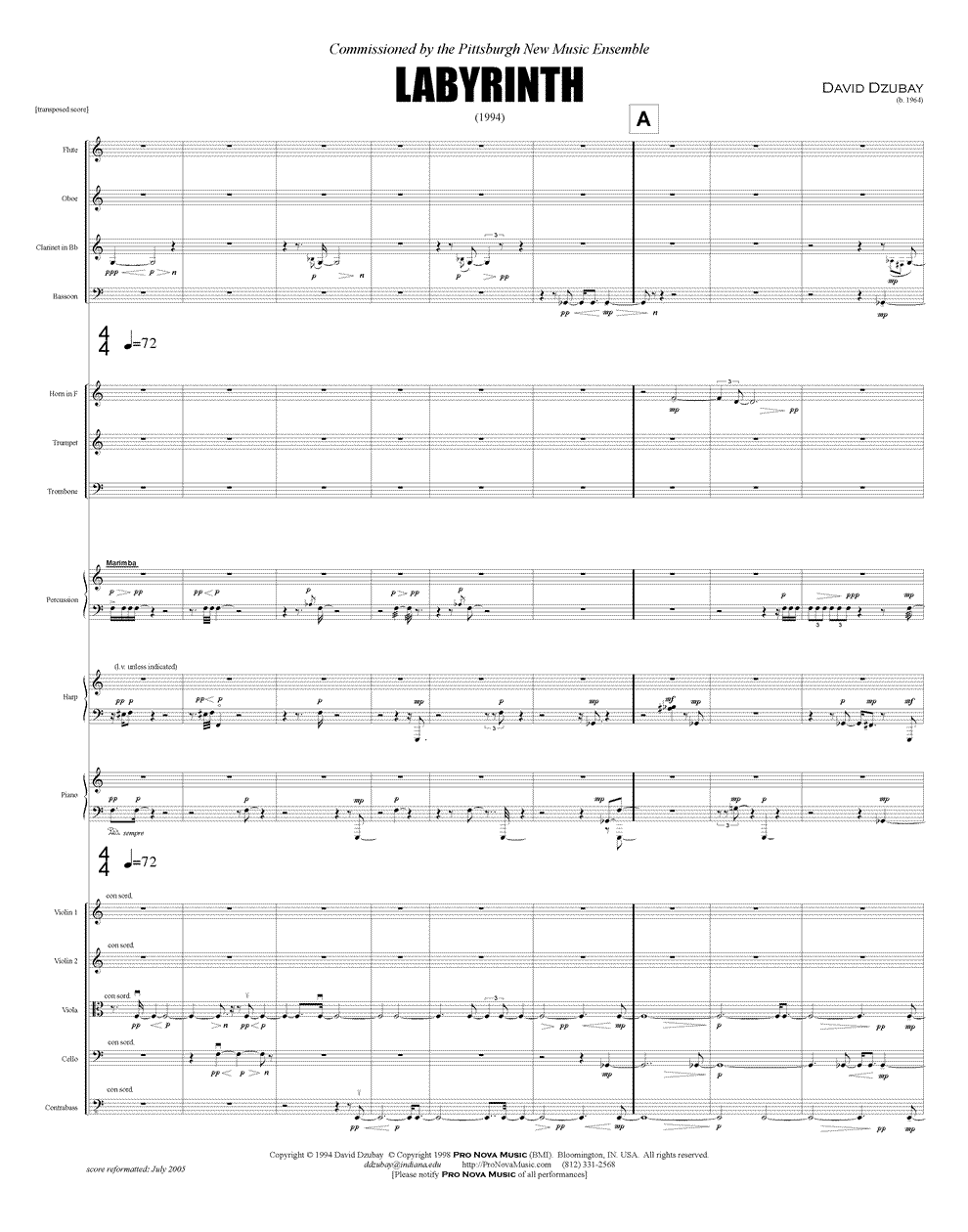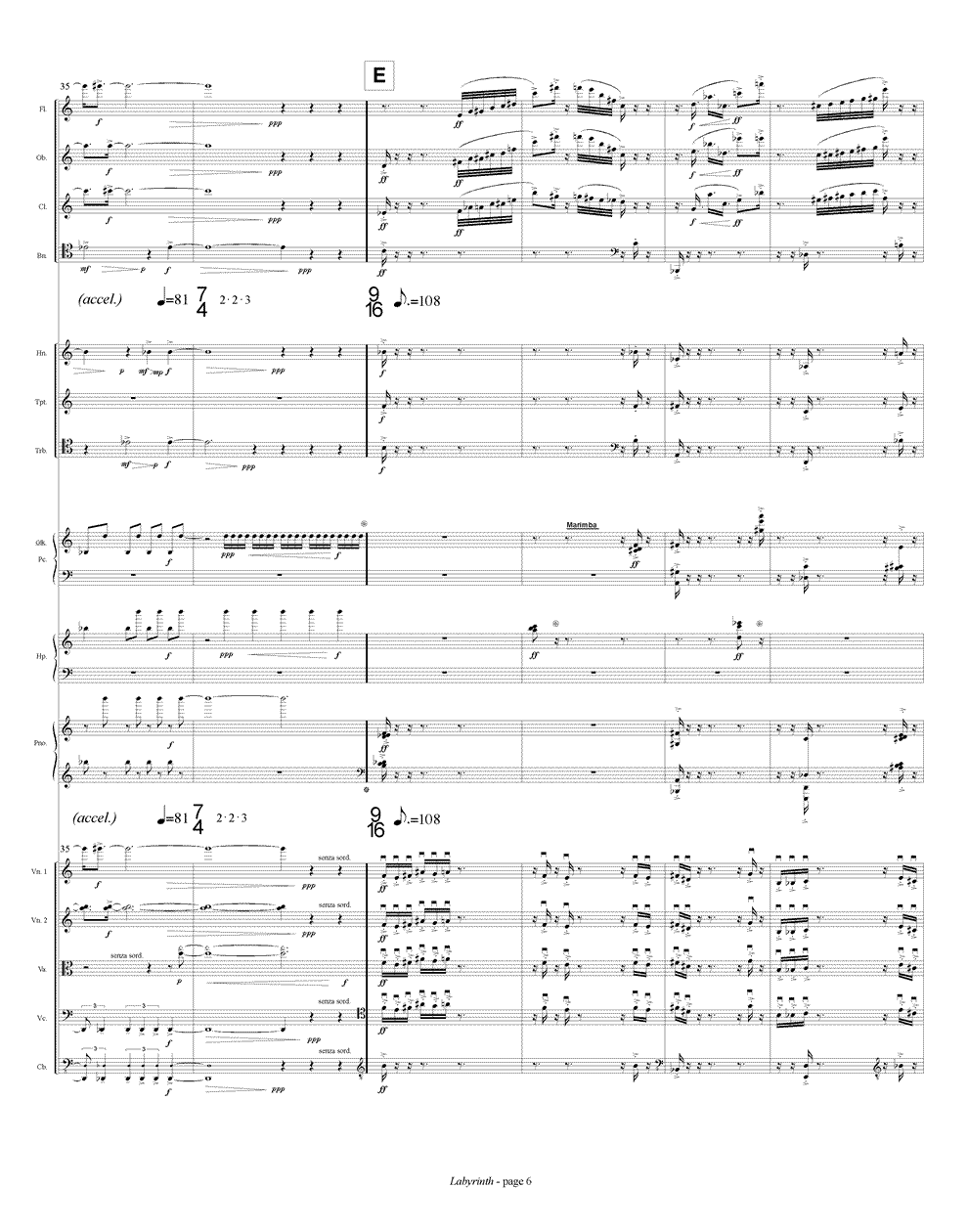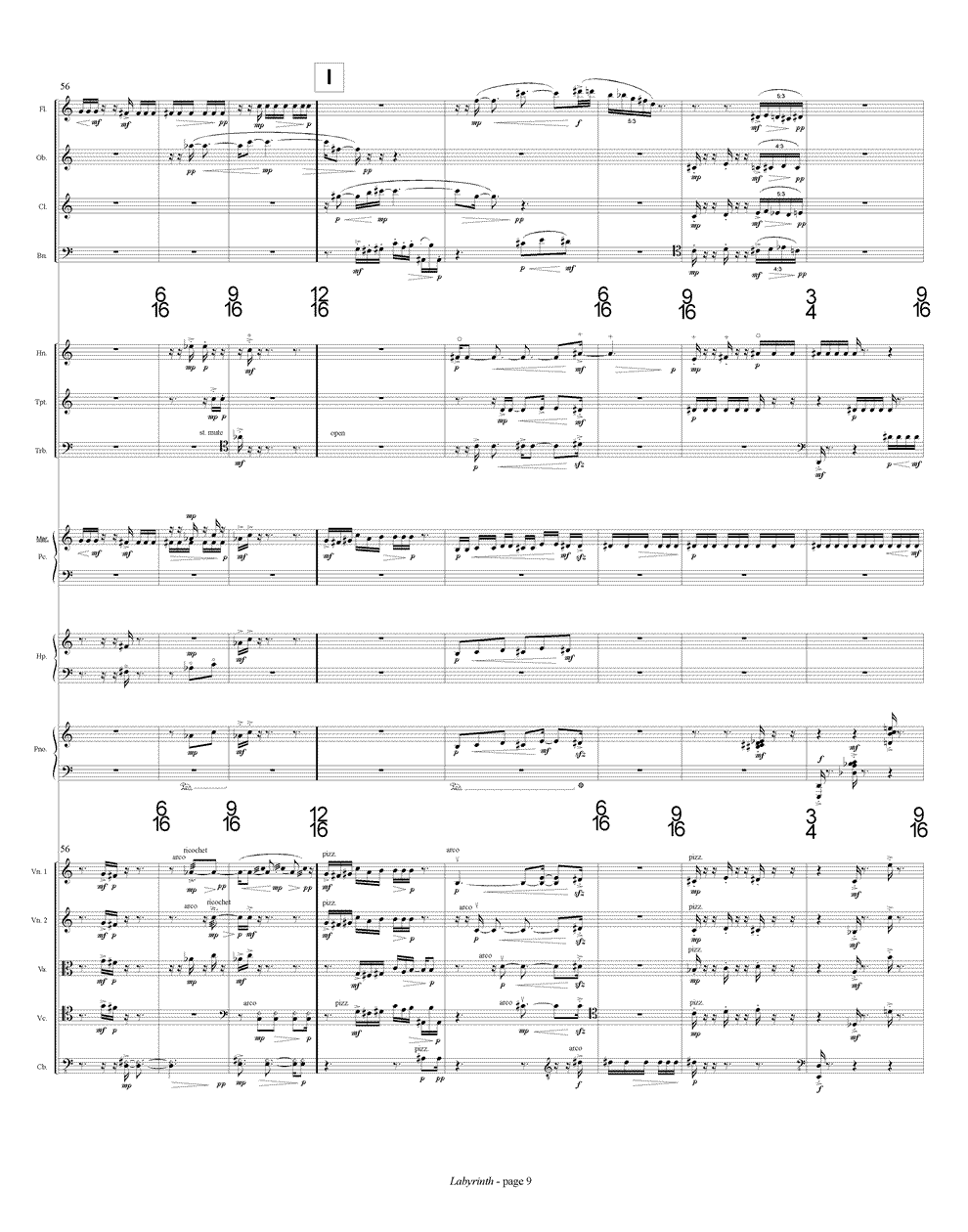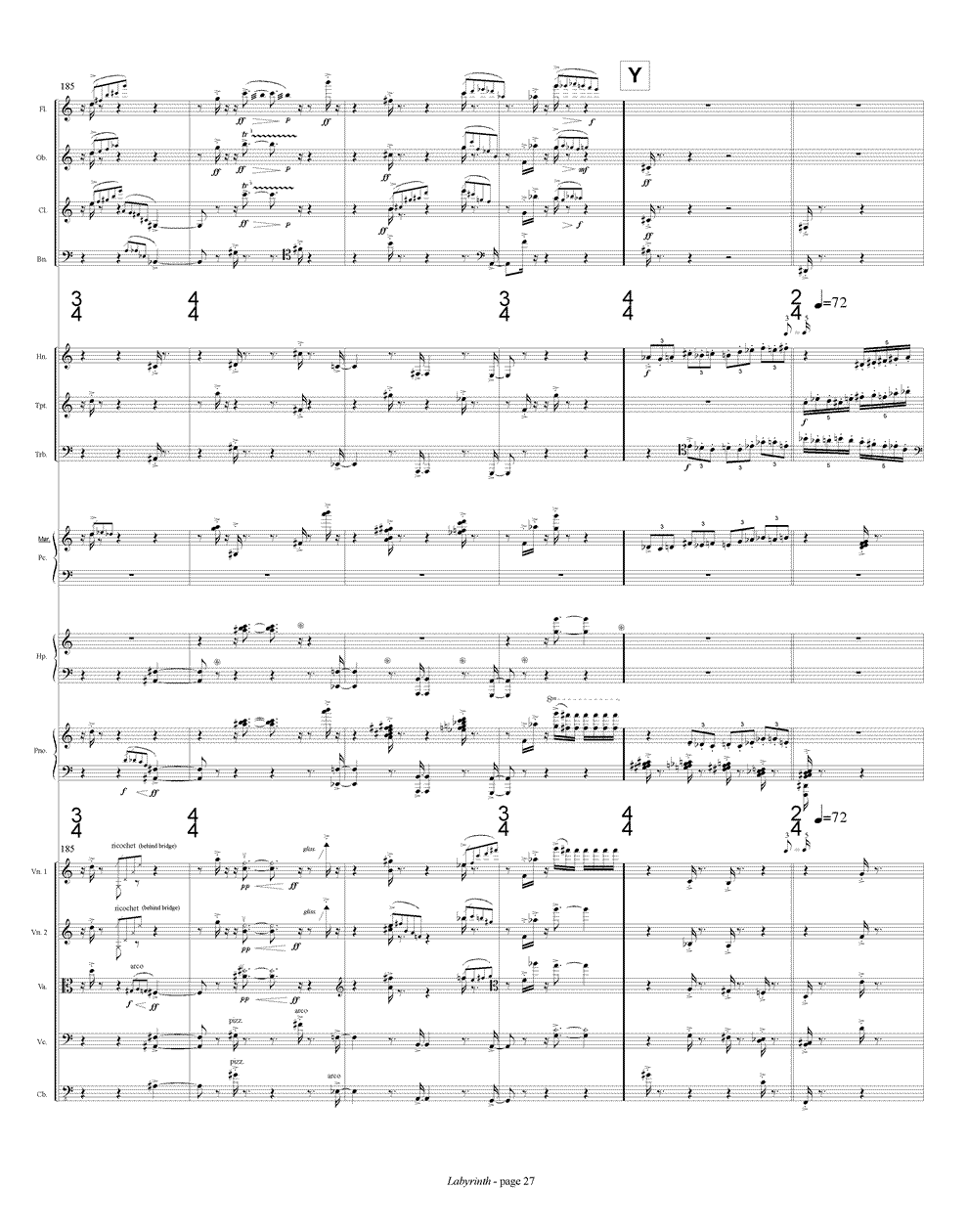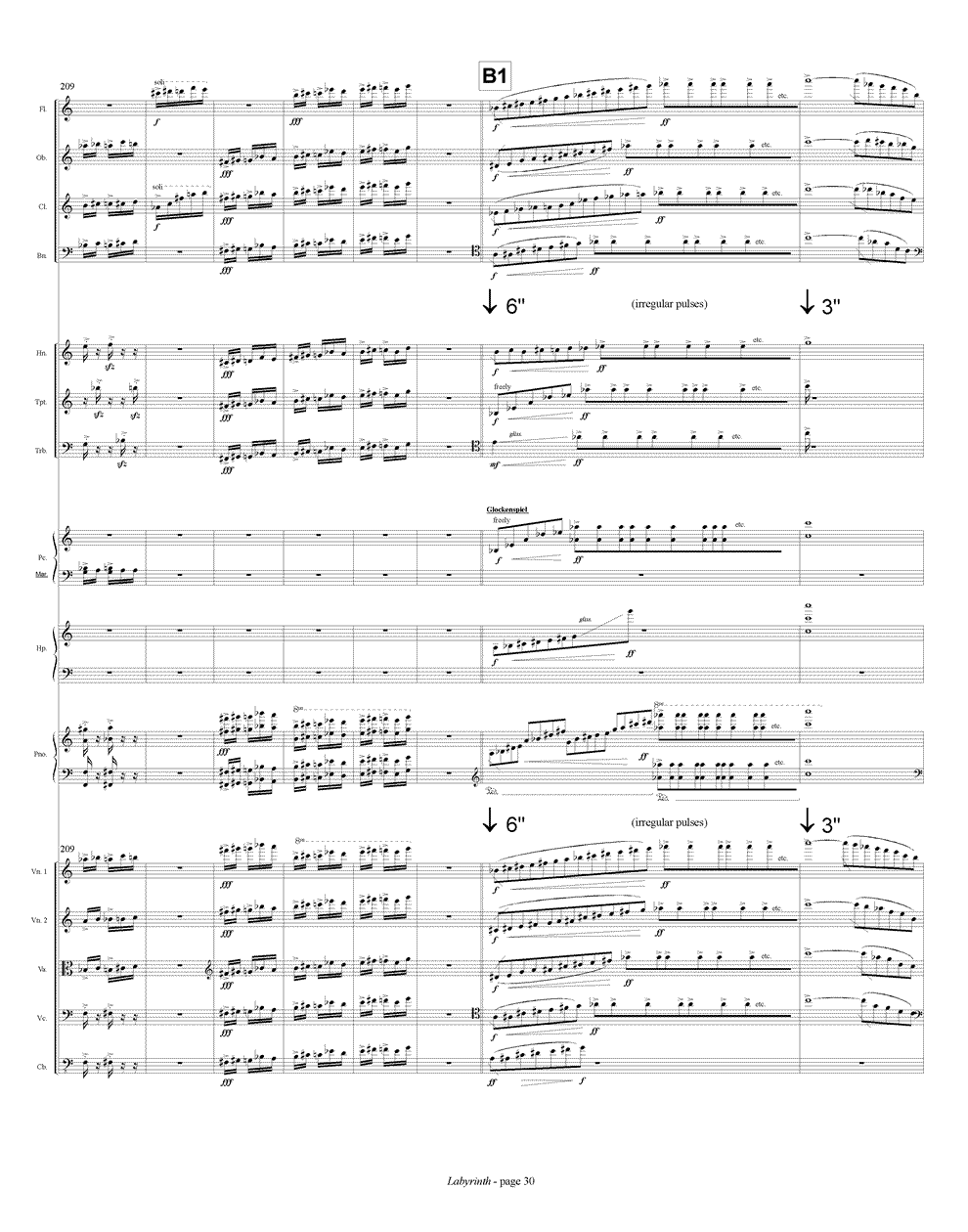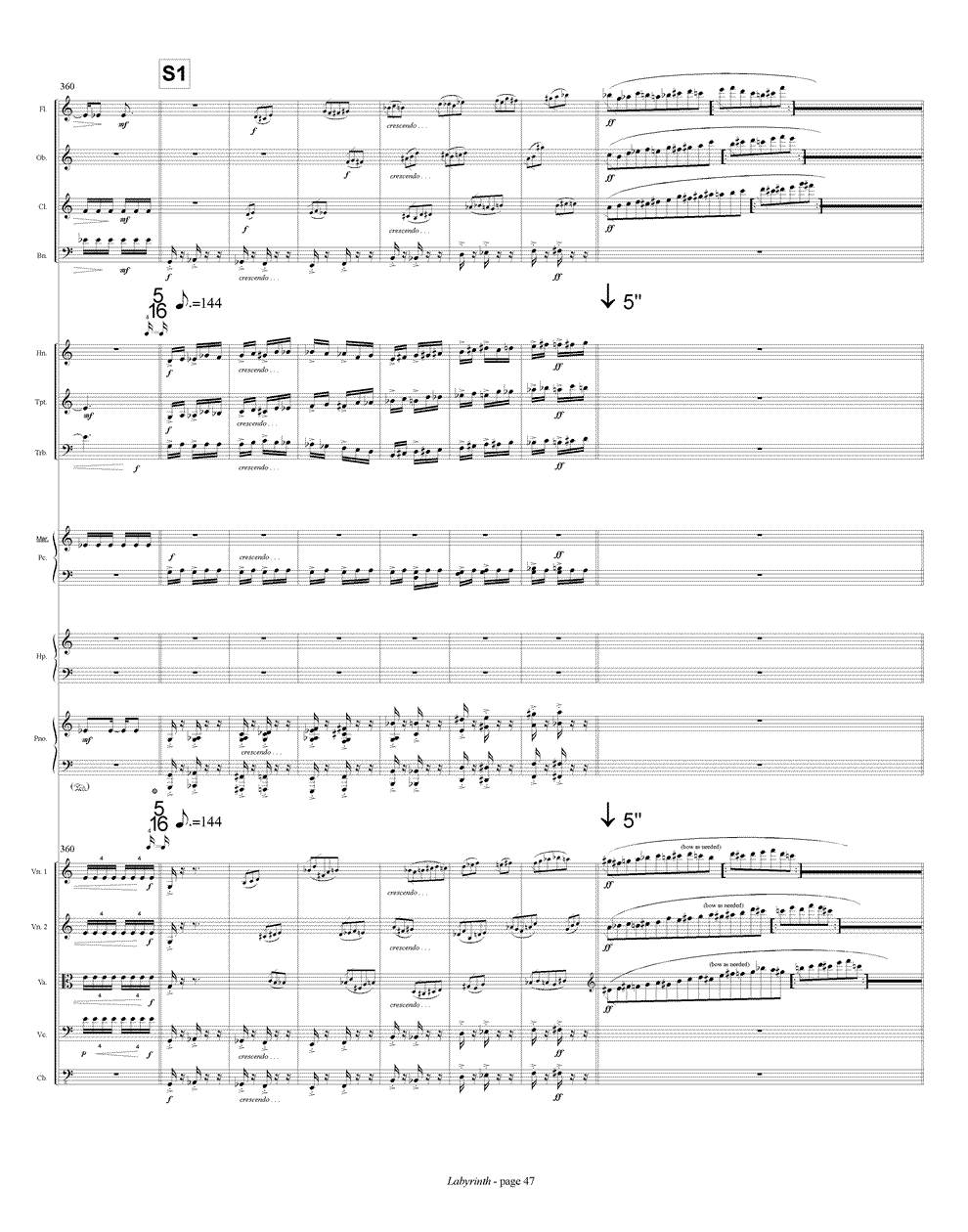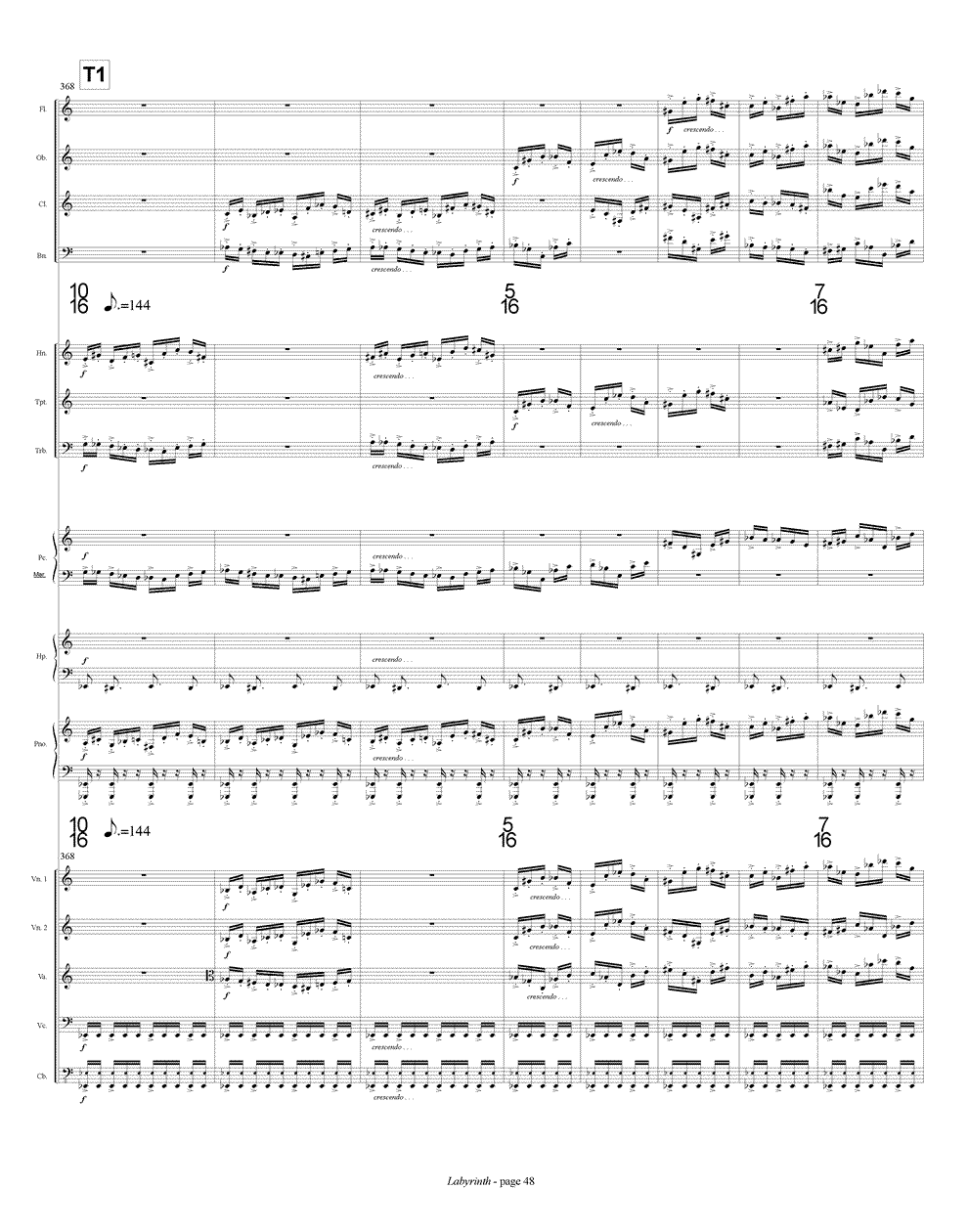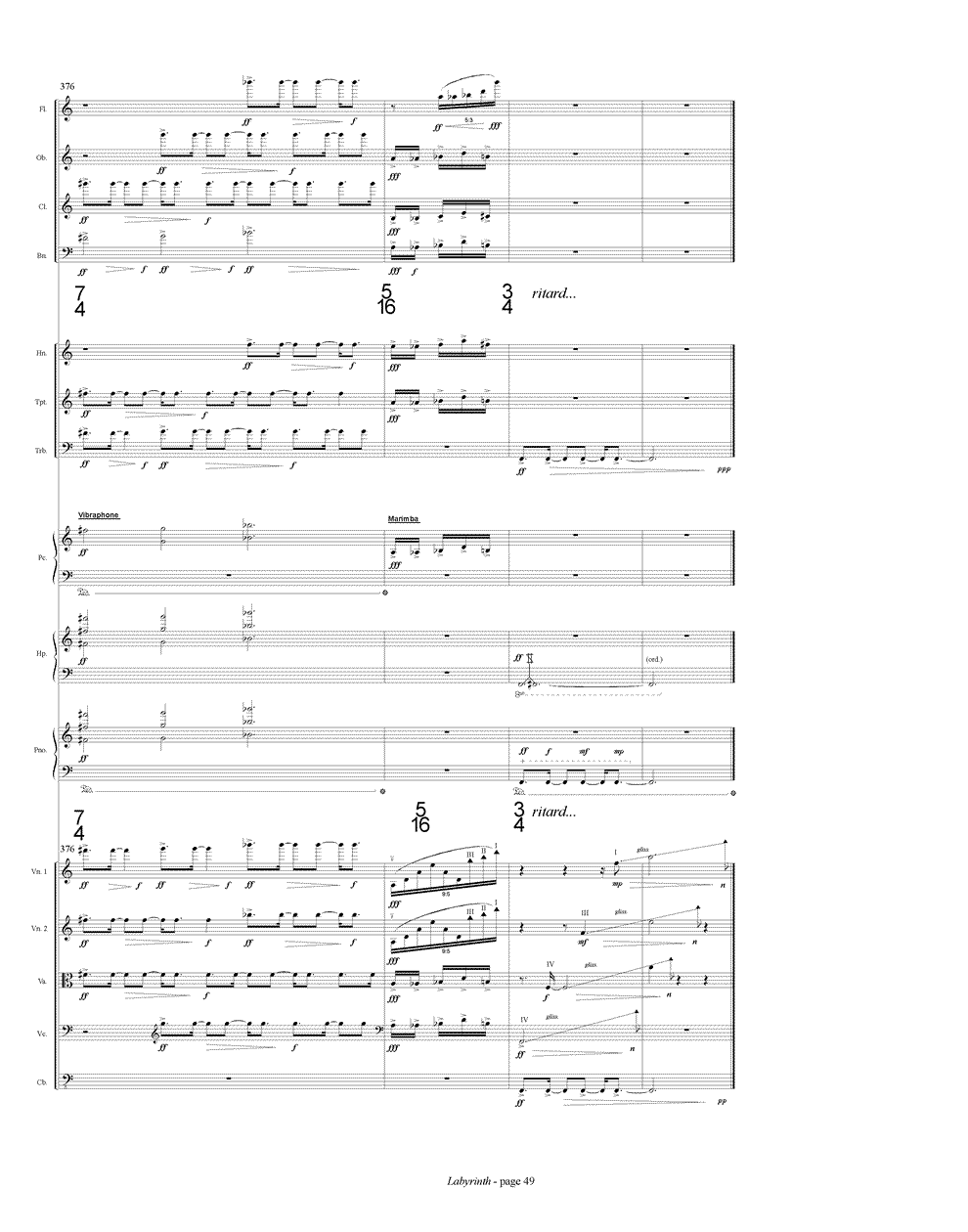Labyrinth
(1994) for ensemble
instrumentation: 1111/1110/1pc,hp,pn/2111
duration: 11 minutes
premiere: Pittsburgh New Music Ensemble, David Dzubay, October 24, 1994
recording: IU New Music Ensemble; David Dzubay, conductor; MS30000013
Recordings
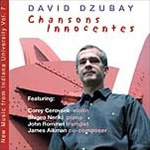 MS30000013 Chansons Innocentes
MS30000013 Chansons Innocentes
IU New Music Ensemble, Corey Cerovsek, Shigeo Neriki,
John Rommel, James Aikman
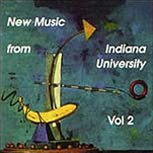 MS30000008 New Music from Indiana University - Vol 2
MS30000008 New Music from Indiana University - Vol 2
Indiana University School of Music New Music Ensemble,
David Dzubay, conductor
Commissioned by the Pittsburgh New Music Ensemble
Program Note

Cast in a single movement lasting approximately thirteen minutes, Labyrinth falls into a four-part structure. As the title suggests, someone gets caught in a maze….possibly the audience, players, conductor, or all of the above. In my sketches, I refer to the trapped entity as the 'searcher.' The searcher and the labyrinth each have their own musical ideas. This is most clear during the first section, where the pulsating and repetitive music of the labyrinth lures the more melodic searcher music into a trap. The second section finds our searcher exploring the labyrinth, looking for an escape with increasing exasperation. From this point on, the ideas are very much intertwined. The musical labyrinth is comprised of many abrupt changes of texture, meter, and tempo. The third section begins when the searcher reaches a peak of frustration and the ensemble bursts into frantic octaves. Gradually, the texture thins out - our searcher calms down and gains a degree of determination with which to start the final section. This begins with ideas hinted at earlier, which are developed, building to a head, until, with a final flurry, our searcher escapes the labyrinth (I think...).


